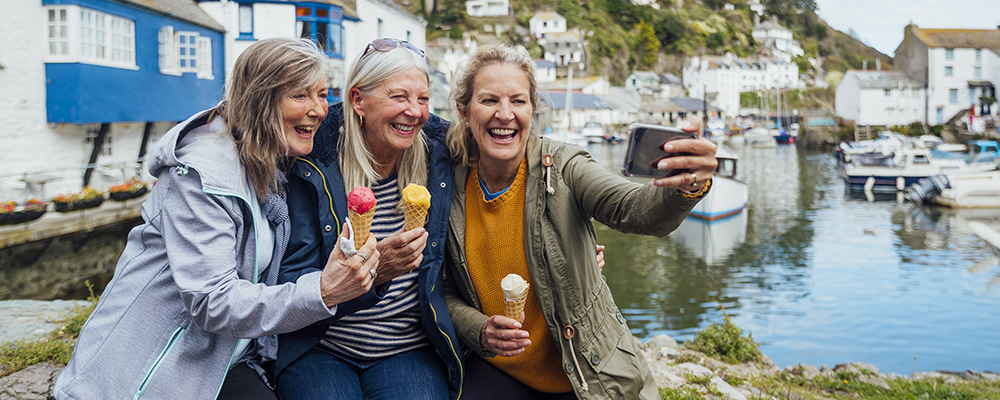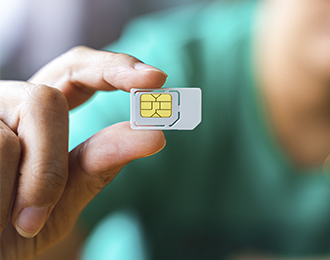
Safety Tips for Travelling Abroad
Planning an overseas holiday is an exciting experience and knowing how to keep yourself safe and healthy while you’re on the move is key to enjoying your time away. Dive into our top dos and don’ts of travelling and get the confidence to pack your bags. Whether it's your first trip or your fiftieth, our simple safety tips are perfect for all ages, and will set you up for a worry-free adventure

How to stay safe on holiday
Looking after your personal safety while you’re abroad is all about being aware of your surroundings and taking some simple precautions. These are some of the best ways to keep yourself safe.
Safety for Senior Travellers
Having more time to travel is one of the great benefits of reaching retirement age. Not only can you start ticking off your travel dreams, but travelling is a great way to keep active and stay connected, whether it’s visiting family overseas or making new friends along the way.
Planning a holiday is all part of the fun and making sure you’ve thought through the health and safety side of things is one of the best ways to ensure it’s all smooth sailing (or flying!) once you’re on your way. Our top tip is to organise your travel insurance as soon as you book your travel. That way you’ve got cover in place in case your trip is cancelled or changed due to illness or injury.
Finding the right insurance cover for senior travellers is extra important as some insurers have age limits in place. You’ll be pleased to hear that the age limit for three of our policies - International Comprehensive, International Medical Only and Annual Multi-trip - is 118!
Research your destination
Start by researching your travel destination before you book. Check Smartraveller for the official advice for Australia and see if there are any advisories for your holiday. Your travel insurance may not cover you if you head to an unsafe destination.

As well as finding out about the climate and the best time of year to visit, you can learn about any health and safety risks in that country. That way you can either take precautions when you’re there (like not drinking the tap water) or choose somewhere else to visit. After all, holidays are meant to be fun, and finding yourself in the middle of a major health outbreak or crime hotspot isn’t a great way to unwind.
Share your itinerary with family and friends
This isn’t just about making your loved ones jealous! Letting others know your plans and then sending regular updates is an important part of travel safety. That way, if the worst happens and you don’t arrive on schedule or can’t get in touch, they can reach out to local emergency or consular services to get you help.
Equally important is that you only share this information on a need-to-know basis and avoid posting it on social media. Advertising the fact that your home is sitting empty while you’re on holiday could be an open invitation to burglars, while sharing personal information about hotel reservations and flights could also make you vulnerable to identity theft
Be vigilant
While holidays are all about relaxation, it’s important not to let your guard down when travelling abroad. Your research will tell you about areas to avoid, for example, places where pickpockets are known to operate, and the usual common-sense rules apply, like not being alone at night in an isolated area.
Meeting new people is one of the joys of international travel but don’t be too trusting of strangers. A seemingly helpful local could be just that, but they could also be eyeing up your expensive looking watch.
Know who to call
Keep a copy of important phone numbers to hand so you’ll be able to act quickly in an emergency.
- The local emergency services phone number, 000 only works in Australia.
- Your travel insurance provider. Find out more about how to make a claim.
- The Australian embassy or consulate if there is one.
- Any hotels and airlines you have booked with.
- Next of kin.
Write these down rather than only having them saved on your phone, in case it is lost or stolen.
Keeping personal items safe and secure
As well as looking after your own safety, you should also have a plan for keeping your personal belongings secure. Here are our top tips.

- Only bring what you really need. Credit cards are a yes, but your fishing licence and library card can probably stay at home. Then, if your wallet goes missing you haven’t lost everything
- Don’t carry all your cash and credit cards in one place. If you’re travelling as a couple, split them between you, and divide them between different bags. As well as a backpack you could also carry a money pouch concealed under your clothes. Leaving an emergency credit card in the hotel safe is also a good idea.
- Clothes and bags with inside pockets and zips are a safer option than open pockets. Never leave your wallet or phone in your back pocket or easily visible in an open bag
- Leave expensive jewellery at home. You’re more likely to be targeted by pickpockets and bag snatchers if you look like you have something worth stealing.
- Make copies of important documents including passports, drivers' licences and travel insurance policies. You could print out hard copies and keep them separate from the originals and/or save them securely online. Leaving a copy with family and friends at home is also a good idea.
How to look after your health while travelling
Staying safe on holiday also means looking after your health. While we’re big fans of embracing the spirit of adventure, we also know that holidays are much more enjoyable if you can avoid getting sick. Here are our tips for staying healthy when you’re travelling.

Book a check up
Again, this starts before you leave home. Visiting your doctor for a general check-up and a chat about what vaccinations you might need is one of the best ways to ensure a healthy holiday. Be sure to do this well in advance as some vaccinations require multiple doses spread over a few weeks. While you’re booking appointments, also think about seeing your dentist. Having toothache on a plane is even worse than at home!
Check your medications
If you take regular medication, not only do you need to make sure you have enough to last for your trip, but that you’ll be allowed to take it into your travel destination. Some medications that are legal in Australia are illegal abroad. Ask your doctor for advice on this and you can also check with the embassy or consulate in the country you’re travelling to.
It’s a good idea to carry your medication with you in your hand luggage rather than packing it in your suitcase. If your luggage gets lost or there’s a delay in you collecting it, you’ll still have important medicine with you.
If you have allergies or a chronic illness, it’s a good idea to wear a medical alert bracelet while you’re travelling. If you experience a medical event, this could be the easiest way to get help, especially if there is a language barrier.
Use mobility aids when necessary
Avoid the risk of tripping or falling over on holiday by using mobility aids when necessary. Crutches, canes and collapsible walking frames are allowed in aircraft cabins so you can keep these with you as needed. Airlines also offer wheelchair assistance, whether this means bringing your own wheelchair or using one supplied at the airport. You should discuss these options with the airline when you book your trip.
Double check that your accommodation meets your accessibility needs. The view from the 15th floor might be spectacular but harder to enjoy without a lift to get you there.
You’ll also want to make sure that your luggage is easy to transport. Wheely bags are wonderful inventions and avoid the risks associated with heavy lifting. Even so, check that you can still carry your bag over a short distance, up a short flight of stairs for example. Packing light is the key – check out our packing tips.
Food and drink
Staying hydrated and eating well are always important for our health but especially while we’re travelling. Long haul flights, disrupted sleep, jetlag and unfamiliar food can mean we don’t eat as well as we should or in healthy quantities.

Here’s our advice for eating well while travelling:
- Stick to regular mealtimes as much as possible. Having breakfast, lunch and dinner will keep you well fuelled for the day’s adventures
- Don’t be afraid to try the local delicacies but be mindful of hygiene standards, particularly at food stalls.
- Drink plenty of water to make sure you stay hydrated, especially in hot countries. The tap water may not be safe to drink so stick to bottled water and avoid ice in your drinks.
Don’t forget to rest
While it’s tempting to tick off all the must-see tourist attractions, this isn’t always good for your health! Make sure you include rest days in your itinerary, so you don’t end up exhausted or unwell. Pack a good book or just sit back and enjoy the view.
The content of this article is general and provided for information purposes only. Southern Cross Travel Insurance (SCTI) doesn’t guarantee or warrant the accuracy, completeness or currency of any article.
This article may contain hyperlinks to other websites owned or operated by third parties, or references to third party products or services. SCTI isn’t responsible for, and makes no recommendation about, the content or accuracy of any third party website, or for the suitability or performance of any product or service. The inclusion of a link in this article doesn’t imply that SCTI endorses the website or third party product/service.





